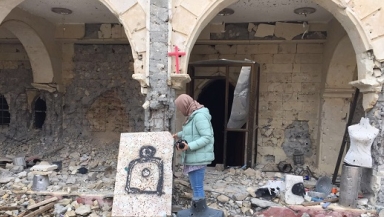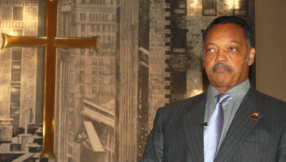
A senior aid worker has warned efforts to clear and restore villages liberated from Islamic State in Iraq are undermining the possibility of recording the atrocities that took place there.
Dr Sarah Ahmed, director of projects for the Foundation for Reconciliation and Relief in the Middle East, last month visited a number of towns and villages in the Nineveh Plains area around Mosul.
According to World Watch Monitor, she said she was "shocked" by what she found.
"The houses were so burnt, in a weird way; their structure was compromised, " she said.
Ahmed, herself a Sunni Muslim, said she believed that IS had used explosives in Christians' homes in order to render the areas formerly lived in by non-Muslims uninhabitable "for a long while".
However, she said that documenting the damage and recording testimonies of atrocities was "incredibly important". She described finding grafitti in a church and said: "You shouldn't [remove it] until the world knows what has happened to all these places," she said.
Ahmed also described her visit to the cathedral in Qaraqosh, where IS appeared to have used mannequins looted from a local tailor's to practise shooting.
"A church is a holy place," she said. "I kept thinking: how many people died here? You wouldn't even know – the walls are all black and burnt."
She said many Christians would not want to return home but those who did would need support, including financial support.













